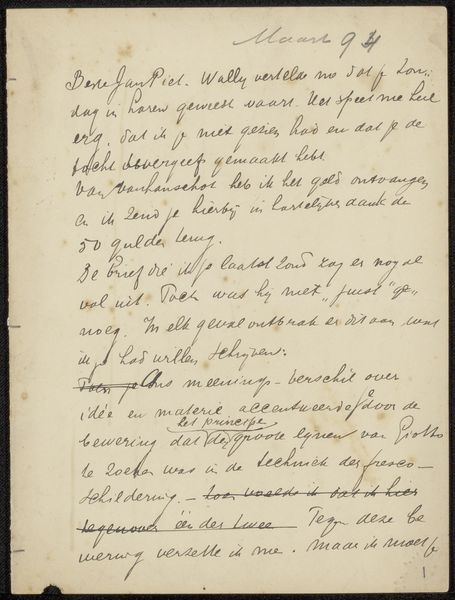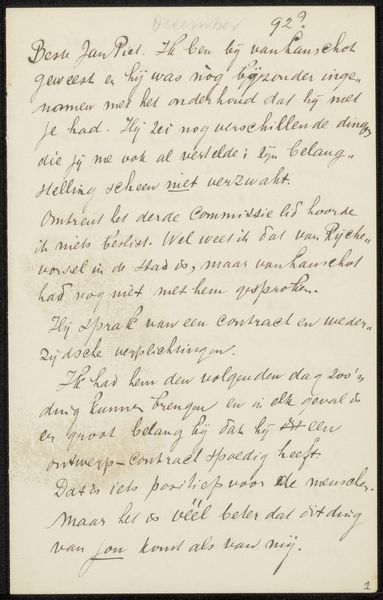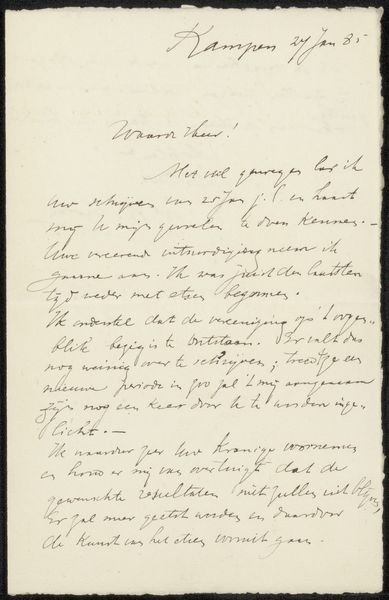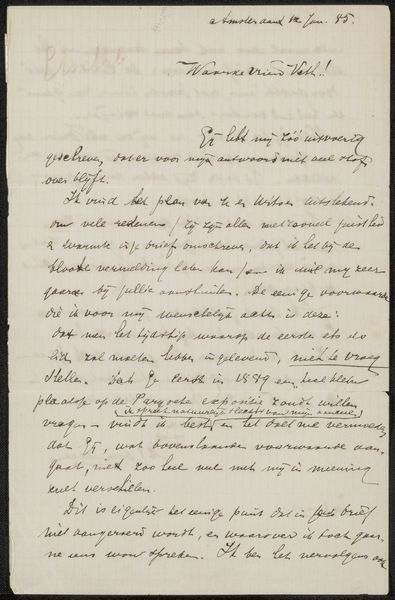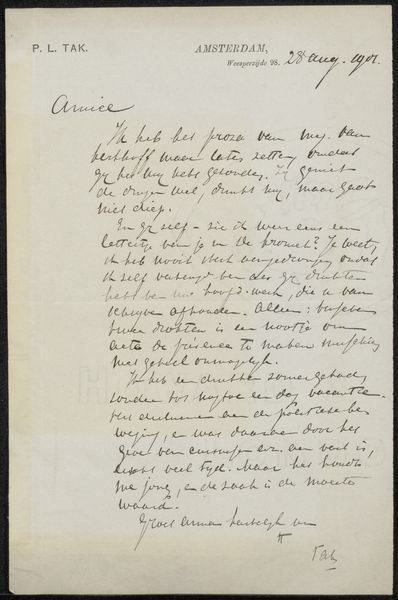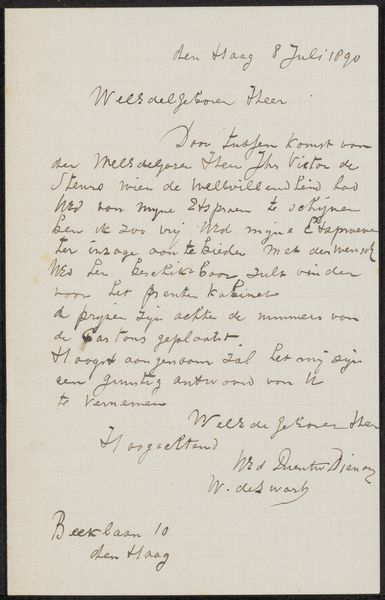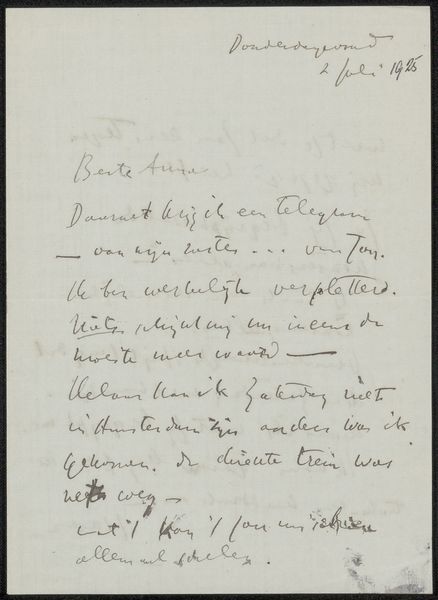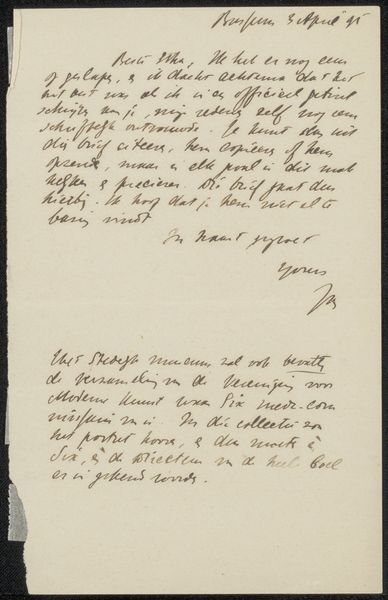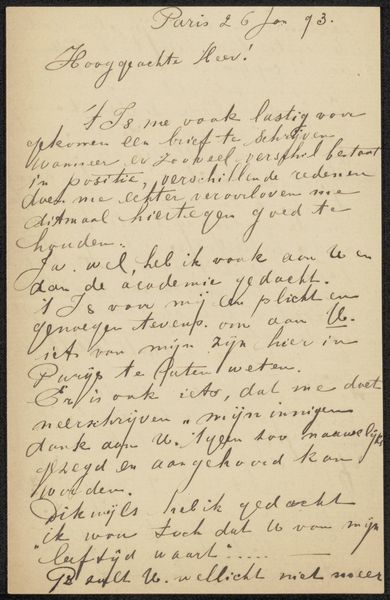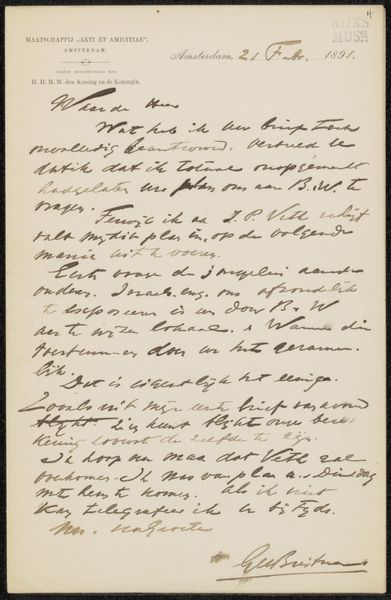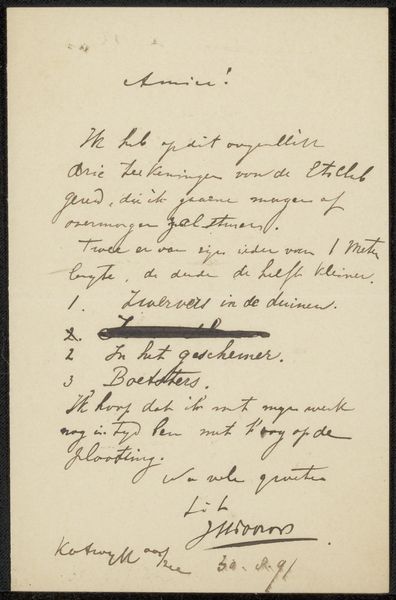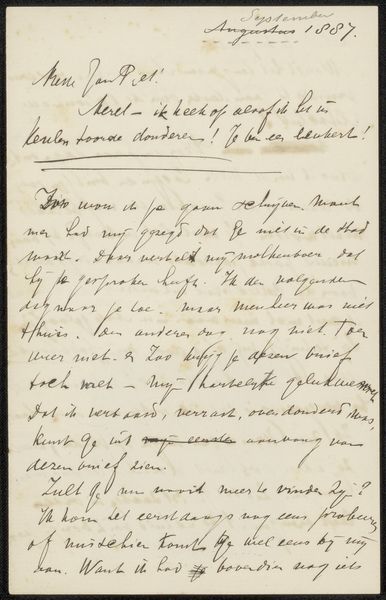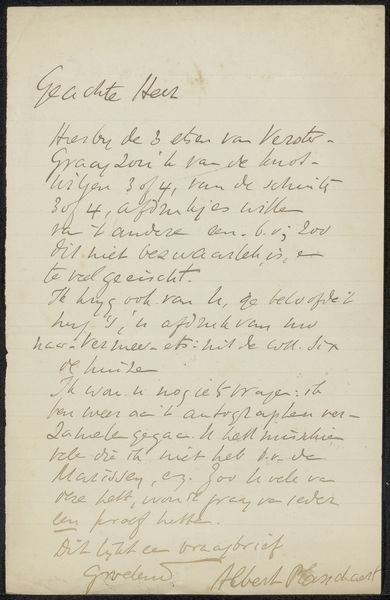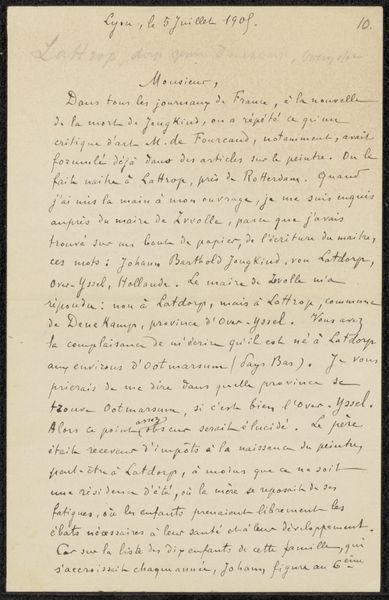
drawing, paper, ink
#
portrait
#
drawing
#
hand-lettering
#
hand drawn type
#
hand lettering
#
paper
#
personal sketchbook
#
ink
#
calligraphy
Copyright: Rijks Museum: Open Domain
Curator: This drawing, “Brief aan Jan Veth,” possibly from 1892 by Antoon Derkinderen, seems like a simple handwritten note at first glance, but what strikes you about it? Editor: I think the drawing appears so personal and intimate. The handwriting gives it character, and makes me wonder about the relationship between Derkinderen and Jan Veth. How do you interpret this work? Curator: Well, let's consider the act of writing itself, especially back then. Handwriting was a direct expression of the self, a personal encoding of thoughts and emotions. The flourishes and the slant of the letters carry the weight of the sender’s character. It reminds us of a time before ubiquitous printing, where calligraphy itself held significance. Editor: That makes me think about the message more carefully. Is it possible to decipher anything about their relationship based on the tone of the letter? Curator: Perhaps. Words and visual styles both offer coded expressions between the sender and the recipient. Take the very opening – “Beste Jan Piet” - there is familiarity and perhaps fondness there. Now, think about what this kind of intimate, hand-delivered correspondence meant for artists in the 19th century. What social bonds are being represented? Editor: It gives a real sense of artistic community and camaraderie, before social media or even widespread telephone use. Thanks, this really helps me understand it in its cultural context! Curator: My pleasure! Hopefully this has you consider what images have signified and the power of interpretation in unpacking history.
Comments
No comments
Be the first to comment and join the conversation on the ultimate creative platform.
